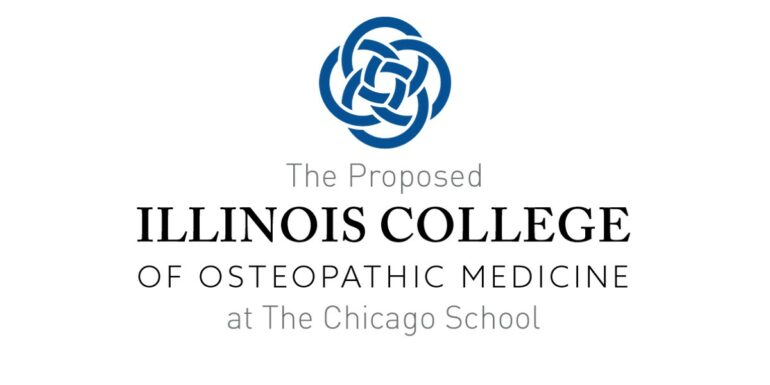When thinking about her vision for the proposed Illinois College of Osteopathic Medicine (IllinoisCOM), Monica Kinde, Ph.D., the senior associate dean of Pre-Clinical Affairs, asks herself one question.
“How willing would you be to see a first-year, first-day med student in an actual patient environment?” Dr. Kinde asks.
With that question in mind, Dr. Kinde plans to give IllinoisCOM students plenty of experiences to learn from before they enter the field in their third year. She says the goal of such preparation will be to instill students with the confidence their patients need to in turn feel confident in the care they receive.
Training in Stages
One way for students to gain this experience will be through the proposed IllinoisCOM’s simulation center, which is planned to have four different stages, each with increasing levels of technology.
“We want students to practice on plastic [models] and with actors before they perform on patients,” says Associate Dean for Clinical Simulation James Colquitt, Ph.D. He says that while students can learn how to provide patient care in hospitals, it’s safer if they first master it on plastic in a simulated environment.
For example, a student may be learning how to insert a breathing tube with a mannequin head in one area, while in another area, a team may work together to help “save the life” of a high-fidelity manikin.
Teamwork, Coordination, and Interconnectivity
In the real world, these future physicians will encounter emergencies, racing against the clock before the patient suffers any severe harm. That will require coordination and with their fellow physicians and other medical team members.
“If we don’t teach them how to integrate as a team of five to six people during an emergency, that patient could suffer permanent injury or die,” Dr. Colquitt says. “We have all the research that says the sooner you can start teaching them how to work as a team with other health care professionals, the better the outcomes of the patient.”
Another goal of the proposed curriculum will be to address the interconnectivity of mental and physical health, according to Dr. Kinde. “Collectively, medical education misses the mark on training physicians to meet the holistic needs of the patient,” she says. “Traditional medicine tends to be focused on physical health. We miss how ‘health’ is more than just what manifests physically in the body.”
With this in mind, Dr. Kinde says she hopes the proposed IllinoisCOM will help solve what she views as a community health crisis.
“You cannot have health without addressing the needs of the whole person, which includes mental health,” she says. “Comprehensive care does not look the same for every patient.”
It will be the proposed IllinoisCOM’s responsibility to equip students with a comprehensive set of skills that includes a holistic and empathetic mindset to meet all of their patients’ needs.

